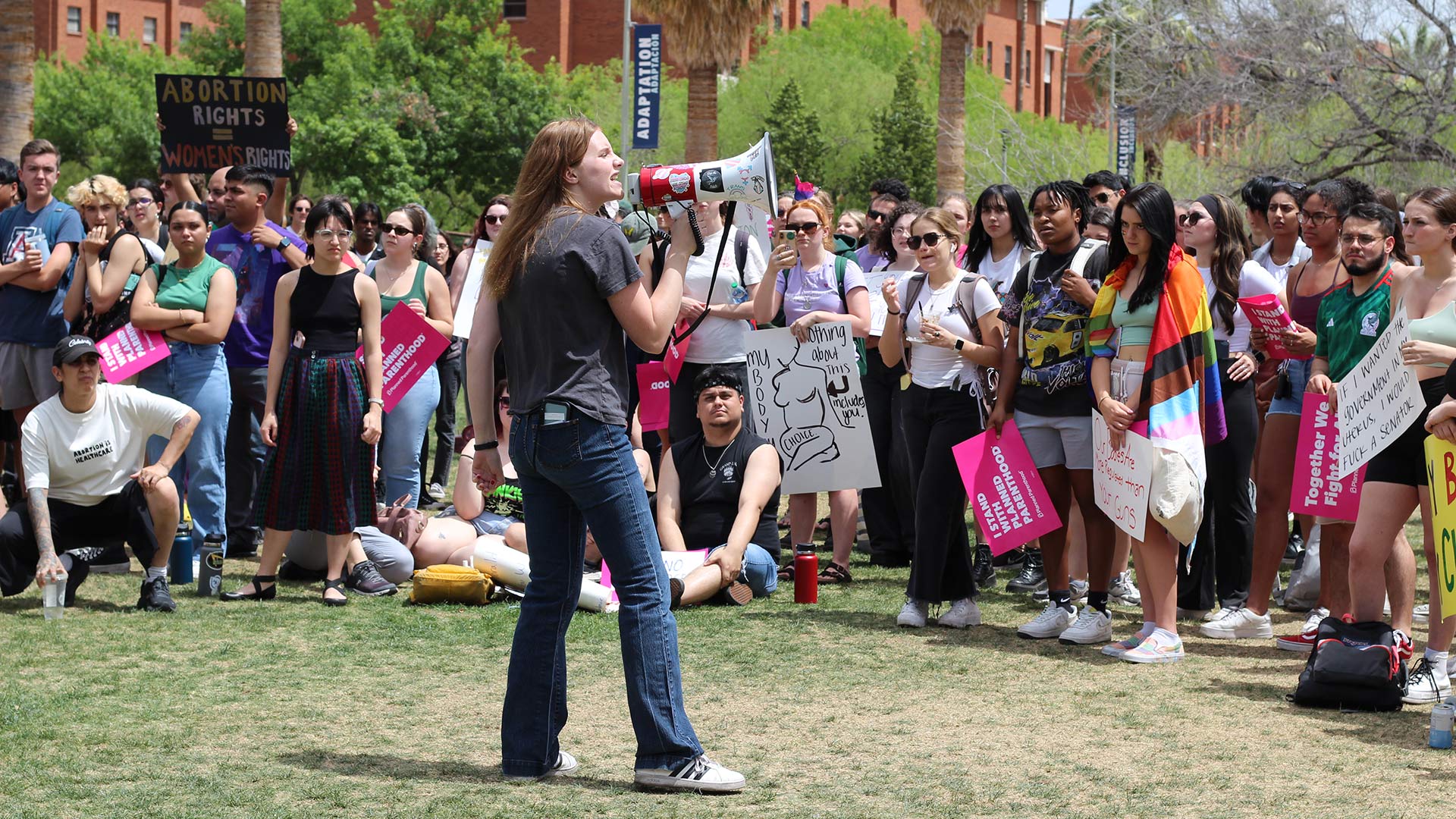 Over 100 UA students gathered on the UA Mall to counter-protest the anti-abortion group, the Center for Bio-Ethical Reform's demonstration "Genocide Awareness Project," that depicted graphic images on Thursday, April 13.
Over 100 UA students gathered on the UA Mall to counter-protest the anti-abortion group, the Center for Bio-Ethical Reform's demonstration "Genocide Awareness Project," that depicted graphic images on Thursday, April 13.
The Arizona Supreme Court grilled lawyers Tuesday over whether a pre-statehood ban on nearly all abortions has been limited or made moot by other statutes enacted over the past 50 years.
The state’s high court is reviewing a lower-court decision that said doctors couldn’t be charged for performing the procedure in the first 15 weeks of pregnancy because other Arizona laws over the years have allowed them to provide abortions.
The 1864 law, which remains on the books, imposes a near-total ban on abortions, providing no exceptions for rape or incest but allowing them if a mother’s life is in danger.
Nearly a year ago, the Arizona Court of Appeals concluded that doctors can't be prosecuted for performing abortions in the first 15 weeks. But it said people who aren't doctors would still be subject to prosecution under the old law.
Attorneys representing Dr. Eric Hazelrigg, the medical director of anti-abortion counseling centers in metro Phoenix who appealed the decision, had argued the Court of Appeals incorrectly concluded that the law doesn’t apply to doctors. They are asking the state Supreme Court to lift the lower court's injunction.
Jacob Warner, an attorney representing Hazelrigg, said Arizona’s 15-week abortion law, which took effect in 2022 after the U.S. Supreme Court overturned Roe v. Wade, makes it clear that abortion is only allowed after that time frame to protect the mother's life "or to prevent significant reversible bodily impairment.”
Andrew Gaona, an attorney representing Planned Parenthood Arizona, said that in passing laws regulating abortion over the past 50 years, Arizona lawmakers didn’t “signal any intent that most if not all of these subsequent enactments would become mere empty shells if Roe v. Wade were ever to fall."
A court had blocked enforcement of the 1864 law shortly after the U.S. Supreme Court issued the 1973 Roe v. Wade decision guaranteeing a constitutional right to an abortion. After the Supreme Court overturned the decision in June 2022, then-Republican Attorney General Mark Brnovich succeeded in getting a state judge in Tucson to lift the block. Brnovich’s Democratic successor, Attorney General Kris Mayes, has since urged the state’s high court to reject Hazelrigg’s appeal.
This past summer, abortion rights advocates began a push to ask Arizona voters to create a constitutional right to abortion. If proponents collect enough signatures, Arizona will become the latest state to put the question of reproductive rights directly to voters.
The proposed constitutional amendment would guarantee abortion rights until a fetus could survive outside the womb, typically around 24 weeks of pregnancy. It also would allow later abortions to save the mother’s life or to protect her physical or mental health.

By submitting your comments, you hereby give AZPM the right to post your comments and potentially use them in any other form of media operated by this institution.